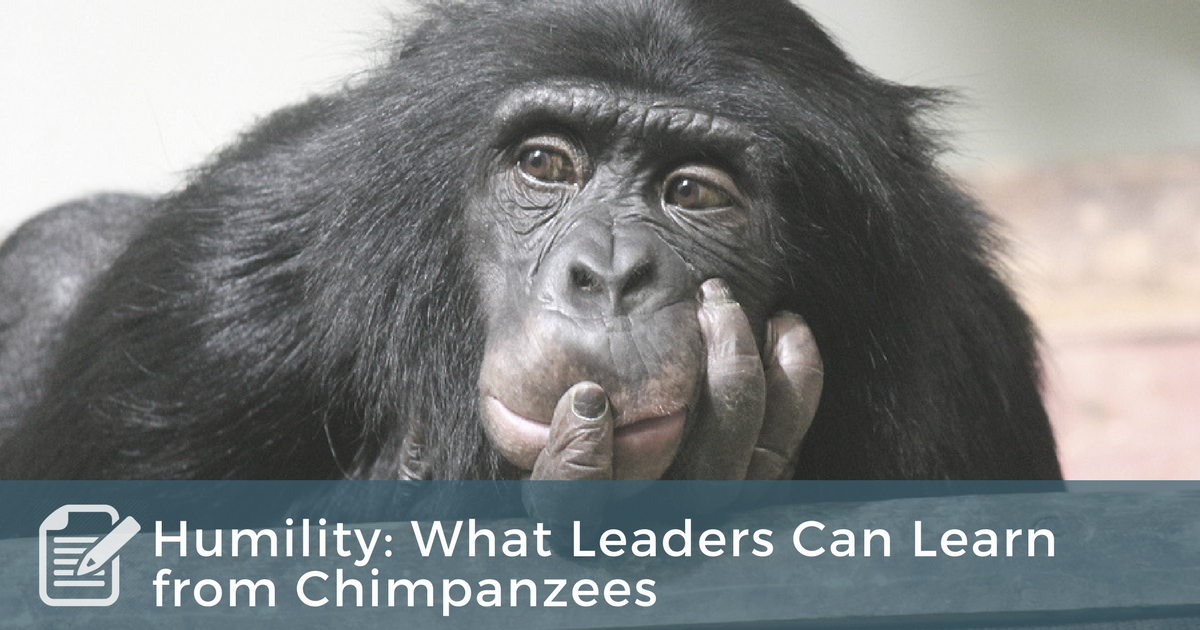 Instead of learning the importance of humility while ascending to leadership, Doug Guthrie learned it on the way down and out.
Instead of learning the importance of humility while ascending to leadership, Doug Guthrie learned it on the way down and out.
Guthrie teaches leadership at Apple University, but his ascent to Apple followed a pride-induced fall. Guthrie is a smart, hard-working and capable leader who served as the dean of the George Washington School of Business. His tenure at GWSB should have been a long and fruitful one, but it wasn’t. Why? As Guthrie confesses, “the painful reality is that I lacked the important element of humility when I walked through the doors at GWSB. I thought I knew everything when I really had much to learn.”
Guthrie’s rise and fall exemplifies the precarious place of leaders. In order to rise, leaders have to stand out. But when a leader stands out too much, or stands out by stepping on others, the leader risks being ousted. Followers want a leader who is strong and smart, but strength and smarts alone is not enough. Followers want a leader who makes room for others and to sometimes take the role of a servant. It turns out that followers best respond to leaders who display a threefold combination of traits: strength, smarts, and service.
Without a humble willingness to serve, strong and smart leaders do not last very long. Such was the case for Pimu, the alpha leader of a chimpanzee troupe near Lake Tanganyika in Tanzania. Pimu ruled for several years through brutal force and intimidation, but after he chased away his second-in-command one morning in 2011, four of his subordinates took advantage of the situation. They banded together and killed him.
As Jane Goodall observed, male chimpanzees gain alpha leadership status by displaying strength, smarts and service. No chimp is going to follow a leader who is weak. But when the leader relies too much on strength behaviors (such as intimidation and physical assault) and not enough on servant-like behaviors (including deference acts such as grooming subordinates), his followers can revolt if they see an opening. As Pimu and Doug Guthrie both learned, it turns out that too much strength and not enough service is not very smart for leaders.
Great leaders incorporate plenty of humility into their leadership style. Leaders should embrace a humble approach for three reasons:
- Humility puts God first. Without humility, a leader will get puffed up on pride and squeeze God out of the picture altogether. This is the story of Satan’s fall and it’s the story of failure for many other leaders.
- Humility is the antidote for pride. Pride not only puffs up, it also prevents the leader from hearing what others have to say and share. The humble leader shrinks the ego, which makes room for collaboration and others’ contributions.
- Humility is open to wisdom. No matter how strong or smart you are, you will never be strong enough and smart enough for what life will eventually throw at you. The prideful leader foolishly assumes they have what it takes no matter what. In contrast, the humble leader proactively seeks out wisdom today in order to be better prepared for tomorrow’s challenges.
Before closing, let’s be clear that you can overdo humility. True humility does not underestimate strength and smarts – it rightly assesses those capacities. Whereas pride sees no limit to one’s ability, overdone humility sees too many limits to what the leader has to offer. Underestimating leads to holding back, robbing those you lead of what you have to offer. True leadership requires you to show up as a smart, savvy, influential person while also humbly making room for others.
Where are you when it comes to humility? Do you lead from humility, or do you overwhelm people with your strength and smarts? Or perhaps you mistakenly underestimate your capacity and rob others of what you have to offer. Who’s a leader you’ve seen do humility right? Leave your comments below.
NOTE: this post is an edited excerpt from a lengthier article written for The Table at Biola University.



1 thought on “Humility: What Leaders Can Learn from Chimpanzees”
Hi Chad, I would say that I am starting to get more involved in the worship arts community here at New Hope Church in Happy Valley, OR. It’s been such a great and healthy experience for me so far. Thanks again Chad for sharing around this very important topic on “Humility”. Such a good reminder for me and for all of us moving forward.
Leaders who I have seen do humility right,
– Pastor John Rosensteel
– Paul LaFeber | New Hope Church | Happy Valley, OR
– Dr. David Brunner | Professor at Portland Seminary
– Dr. Mary Kate | Professor at Portland Seminary
– Pastor Robert Morris at Gateway Church | Southlake, TX
– Pastor Chuck Swindol with Insight for Living | TX
– Pastor Joel Sommer at Access Covenant Church | Portland, OR
Thanks CAM!